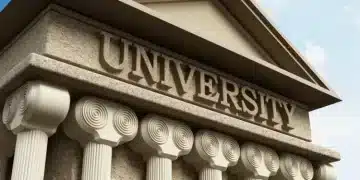Student loan cancellation decisions that could change lives

Student loan cancellation decisions involve forgiving some or all of a borrower’s debt, significantly impacting their financial stability and future opportunities.
Student loan cancellation decisions have been a hot topic lately, affecting millions. Have you considered how these changes might impact your life? Let’s dive into what’s happening.
Understanding student loan cancellation
Understanding student loan cancellation is essential for students and graduates navigating the complexities of their financial obligations. These decisions can significantly shape one’s future, affecting job choices and life plans.
The concept of student loan cancellation refers to the process of eliminating a portion or all of a borrower’s student debt. Many factors can lead to cancellation, including government programs, income-driven repayment plans, and legislative changes.
Different Types of Loan Cancellation
There are various avenues through which student loans can be canceled. Understanding these options can help borrowers take action to reduce their debt burden:
- Public Service Loan Forgiveness: Available for borrowers who work in qualifying public service jobs.
- Teacher Loan Forgiveness: Targets educators who teach in low-income schools.
- Income-Driven Repayment Forgiveness: After a specific period, remaining balances might be forgiven based on income.
- Closed School Discharge: Allows cancellation if the school closes before the borrower can complete their program.
Moreover, legislation has been evolving in recent years, causing changes that impact many borrowers. For example, various relief measures during the COVID-19 pandemic temporarily halted payments and interest, benefiting countless individuals. Awareness of these policies is crucial.
Borrowers should also know that in order to qualify for these programs, documentation and eligibility criteria must be carefully followed. Missing paperwork could mean the difference between relief and continued obligation.
Steps to Explore Cancellation Options
It’s important to take proactive steps in exploring loan cancellation. The following actions can help:
- Check eligibility regularly for federal programs.
- Maintain records of employment and teaching service.
- Consult resources such as the Federal Student Aid website for updates.
Understanding student loan cancellation decisions not only involves knowing different programs but also being informed about one’s rights as a borrower. Empowerment through knowledge is key.
Impacts of loan cancellation decisions
The impacts of loan cancellation decisions can be profound, influencing the lives of millions of borrowers. When large-scale student loan cancellations occur, it can shift financial landscapes, allowing graduates to focus on their careers rather than pay off debt.
Cancellations don’t just benefit individuals; they can have far-reaching effects on the economy. As borrowers free up their finances, they may spend more on housing, travel, or saving for the future. This increased consumer spending can stimulate economic growth and create new jobs.
Effects on Borrowers
For individuals, the emotional relief from having student loans canceled can be significant. Many experience reduced stress and anxiety, enabling them to pursue their goals with greater confidence. Consider the following effects:
- Improved financial stability: Canceling student loans can lead to greater overall financial health.
- Increased career flexibility: Graduates may be more willing to take risks, such as starting a business or pursuing lower-paying jobs in public service.
- Enhanced mental well-being: The decrease in debt obligations often leads to a more positive outlook on life.
Furthermore, when students don’t have to worry about loan repayments, they are more likely to invest in further education or training. This shift can lead to a more skilled workforce, which ultimately benefits society.
Effects on the Economy
Loan cancellation has broader implications for the economy. As canceled debt releases funds for consumers, local businesses often thrive. Also, government revenues can fluctuate because tax income from individuals who are less burdened by debt tends to increase.
Increasing homeownership rates can also result from student loan cancellation. Many young adults are unable to buy homes due to their debt levels. With loans canceled, they may finally find the opportunity to invest in real estate.
Who benefits from student loan cancellation?

Understanding who benefits from student loan cancellation is crucial as it can impact many lives. Different groups of borrowers may find themselves relieved in various ways when student loans are canceled. The changes bring hope and accessibility to those burdened by debt.
First, recent graduates often feel the most immediate effects of loan cancellation. Many enter the job market facing high student debt, which can limit their career choices. With loans canceled, they can pursue more fulfilling opportunities, including lower-paying jobs in public service that may align with their passions.
Low-Income Borrowers
Low-income individuals typically face higher levels of stress and financial struggle due to student loans. Cancellations could help these borrowers in significant ways:
- Debt Relief: Eliminating student loans can free up monthly budgets.
- Increased Spending: Savings can contribute to local economies as individuals spend more on essential goods.
- Life Quality Improvement: Reducing debt can enhance mental well-being, instilling hope for the future.
Another group benefiting from student loan cancellation includes borrowers in public service roles. Many of these individuals dedicate their careers to helping others, often with lower salaries. Through loan forgiveness programs, they can find relief from their college debt burden, allowing them to continue their valuable work.
Parents of Student Borrowers
Also, parents who co-signed student loans experience direct benefits when cancellations occur. They may face financial strain helping their children pay off these loans. Canceled loans can lead to improved financial situations for families, allowing investment in homes or savings for future generations.
Ultimately, understanding who benefits from student loan cancellation highlights the ripple effects of alleviating debt. As cancellations happen, many borrowers can experience newfound freedom and opportunities previously out of reach. This change creates paths for many in their personal and professional lives.
Navigating the application process
Navigating the application process for student loan cancellation can feel overwhelming. However, by understanding the steps involved, borrowers can simplify the journey and increase their chances of success. Each program may have different requirements, so being prepared is key.
First, it’s essential to gather all necessary documentation. Most loan cancellation applications require information regarding your loans, employment history, and possibly even income. Keeping organized financial records ensures you do not miss crucial details during the application.
Step-by-Step Process
Here are some important steps to consider when applying for loan cancellation:
- Identify eligibility: Research specific programs to determine which cancellation options apply to you.
- Complete required forms: Each program will have unique forms that need to be filled out accurately.
- Submit your application: Make sure to submit your application ahead of deadlines to avoid delays.
- Follow up: After applying, stay in touch with your loan servicer to check the status and respond promptly to any requests for additional information.
Understanding the application process is crucial for successful loan cancellation. Many borrowers may feel discouraged, but everyone’s journey is unique. Patience and persistence are essential. As you navigate these steps, remember to remain proactive and informed.
Common Pitfalls
Several common pitfalls can delay or derail the application process. For example, some applicants may forget to include critical documentation or miss deadlines. Others may not fully understand the eligibility requirements, leading to wasted effort. Avoiding these mistakes increases the likelihood of a smooth application experience.
As you proceed through the application process, take the time to read instructions carefully and ensure clarity in your submitted information. This will help prevent unnecessary back-and-forth communication with loan officials.
Future of student loans in the U.S.
The future of student loans in the U.S. is evolving rapidly as policies change and more discussions arise about debt relief. Borrowers are keenly interested in how these changes will affect their financial futures. Understanding the potential shifts can help students and graduates prepare for what’s to come.
In recent years, there has been increased attention on student debt issues. Policymakers are considering various reforms, including broader cancellation options and changes in interest rates. Many advocate for more affordable education, which could reduce the necessity for loans altogether.
Increased Focus on Equity
Equity in education and financial assistance is becoming a hot topic. Groups advocating for change emphasize that students from low-income backgrounds often bear a heavier debt burden. The future may see more initiatives aimed at leveling the playing field. This could include:
- Targeted relief programs: Initiatives designed to aid minority and low-income students directly.
- Income-based repayment plans: More flexible options that adjust to borrowers’ earnings, reducing repayment stress.
- Accessible financial literacy programs: Offering students tools and resources to manage debt effectively.
As trends continue, borrowers may also witness new legislation focused on interest rates and terms. For example, discussions are ongoing about the possibility of lowering interest rates on federal student loans. Lower rates could make borrowing less burdensome and help students manage repayments more effectively.
Technological Innovations
Technology is set to play a role in the future of student loans as well. Online platforms make it easier for students to access information about loans, repayment options, and cancellation programs. This accessibility could empower borrowers to make informed choices regarding their finances.
Moreover, advancements in data collection may lead to improved loan management, helping loan servicers communicate better with borrowers. By streamlining processes, the experience of managing student loans can become less daunting for future graduates.
FAQ – Frequently Asked Questions about Student Loan Cancellation
What is student loan cancellation?
Student loan cancellation refers to the process of forgiving some or all of a borrower’s student debt, providing financial relief and potentially improving their quality of life.
Who qualifies for student loan cancellation?
Qualification varies by program but typically includes factors like employment in public service, income levels, and participation in specific repayment plans.
How do I apply for student loan cancellation?
To apply, borrowers must gather necessary documentation, complete the required forms specific to the cancellation program, and submit those forms ahead of any deadlines.
What are the benefits of student loan cancellation?
Benefits include reduced financial stress, increased opportunities for career choices, and potential boosts to the economy as borrowers spend money previously allocated to loan payments.





